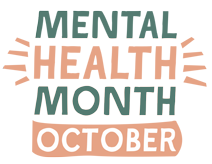The 2016 Mental Health Matters Awards were presented at NSW Parliament House on September 29th, at the launch of Mental Health Month.
The NSW Community Champion Award went to Barry Taylor for his role in developing the South Western Sydney Local Health District Wellbeing Collaboration and the Five Ways to Wellbeing initiative.
The South Western Sydney Wellbeing Collaboration is about local councils and community groups across the area working together to address issues like anxiety, depression and suicide and help improve the general wellbeing of the community. The Five Ways to Wellbeing initiative is a five-point strategy that underpins the collaboration – Connect, Give, Keep Learning, Be Active and Take Notice.
Excellence in Service or Program Delivery Award
Joint Winners: The Centre for Emotional Health, Macquarie University

The Centre for Emotional Health (CEH) is a Macquarie University Research Centre focused on the understanding, prevention and treatment of emotional health problems in children, adolescents and adults. Their vision is “ to build an emotionally healthy community through science and practice”. The psychologists at the centre use a combination of theoretical research and practical application and it has resulted in several ‘world-first’ findings. Some of their areas of treatment include anxiety, autism, depression and social anxiety.
Joint Winners: Psychogeriatric SOS, St Vincent’s Hospital

Psychogeriatric SOS is a web conferencing clinician-to-clinician service run by St Vincent’s Hospital Psychogeriatric Mental Health and Dementia Service that allows clinicians practicing in rural areas to access resources and training that they would otherwise struggle to access. The project has made many successful improvements to the quality of mental health services for rural-dwelling older people in areas, resulting in higher diagnostic accuracy, increased clinician confidence, better patient outcomes and less referrals to specialists.
Watch their video below to see why it is such a successful program.
Aboriginal Social and Emotional Wellbeing
SistaSpeak and BroSpeak Cultural and Mentoring Programs– Moree Secondary College

SistaSpeak and BroSpeak are 10-week programs for indigenous students run during the school term. The programs consist of guest presenters from local organisations and businesses coming in and talking about various social issues likely to impact the students’ lives, such as drug and alcohol abuse, body image, domestic violence and dealing with grief and loss. The program also has a cultural component to it, allowing the students to reconnect with Aboriginal culture as well as learn important life skills. At the end of the program, they hold a formal graduation ceremony for the students who have completed it. The programs have received “universally positive” feedback from everyone involved, from the students themselves to parents, teachers and the presenters.
Watch their video below to see why it is such a successful program.
Mental Health Promoting Workplace
Healthy Minds – Optus

Healthy Minds is a workplace wellbeing program implemented by Optus, with the aim of creating a psychologically healthy workplace as well as reducing the stigma surrounding mental illnesses and encouraging early support and intervention. It consists of a range of health services such as GPs, nutritionists and psychologists available both onsite and via phone and web chat, as well as regular wellbeing initiatives like heart health checks, flu vaccinations and positive psychology workshops.
Cross Sector Collaboration
‘Meet Jessica’ , Department of Psychological Medicine, The Children’s Hospital at Westmead

‘Meet Jessica’ is an animated short film designed to raise awareness around the mental health of children with intellectual or developmental disabilities, who experience high rates of severe emotional and behavioural problems. The film was a collaboration between NSW Health, disability and educational sectors, and was released in conjunction with a ‘train the trainer’ workshop which was run in 28 locations across NSW. Both the film and the workshops have contributed to a much-needed conversation around adjustments that can be made in schools to promote positive mental health and wellbeing.
Mental Health Promotion and Wellbeing
Mental Health and Wellbeing Student Ambassador Program, Western Sydney University

Western Sydney University’s Mental Health and Wellbeing Student Ambassador Program (SAP) adopts a student-led approach towards mental health and general wellbeing in a university environment, with the goal of reducing stigma and raising awareness about positive mental health. Not only do the students involved in the program gain valuable experience, but the program also gives other students who may be struggling with these issues positive role models that they can relate to, and go to for help when they need it.
Watch their winner’s video below
Quality Improvement
Filling the Hawkesbury Gap, St John of God

The Filling the Hawkesbury Gap project was created to identify gaps in the mental health services available to people in the Hawkesbury region. The project consisted of contacting clients who had reported mental health concerns to the Emergency Department and ensuring that they received appropriate follow up care after their discharge, rather than waiting for these clients to get to a point where they need emergency services again. Overall, the clients’ feedback about the follow up care they received was positive.
Culturally and Linguistically Diverse Communities
Evaluation of the Arabic Mindfulness Intervention

In 2013, bicultural psychologist Hend Saab developed the Arabic Mindfulness CD to help some of her Arabic-speaking clients, particularly those suffering from anxiety disorders. Together with a team of researchers, she conducted a study to test out the CD’s clinical effectiveness and cultural acceptability in the Arabic-speaking community in the St George area. The study consisted of 70 participants from Arabic backgrounds, all of whom identified as being Muslim or Christian, who were asked to listen to a couple of tracks from the CD every week and provide feedback about how they felt afterwards. On average, the results showed “statistically significant improvements” in the participants’ mental health levels after listening to the CD, and 94% of them continued to practice mindfulness after the study ended.
Media – National or State
Luca’s Legacy, The Project, Channel 10

‘Luca’s Legacy’ was a story that appeared on Channel 10’s ‘The Project’, featuring an interview with Julia Trinne, a woman whose 4-year old son Luca was killed by her husband Dave during a psychotic episode. Dave had been battling bipolar disorder but was otherwise described as a loving husband and father. The story was led by field producer Kate Mellis, with Carrie Bickmore performing the interview with Julie. Not only does the story honour Luca’s memory, but it also raises awareness around mental illness and the resources available to treat it.
Consumer Involvement and Participation
Taking a qualification to the Peer Workforce, The Mental Health Coordinating Council

The Mental Health Coordinating Council is the peak body for non-government mental health organisations, and their vision is that “people with lived experience are the drivers of positive change in all mental health services and mental health reforms.” One of the ways that they have helped realise this vision is through the creation of a Certificate IV in Mental Health Peer Work, which was developed through close consultation with both consumers and carers in the mental health industry.
Older Persons Mental Health
Environmental Design Education Service, NSW/ACT Dementia Training Study Centre

Created by Professor Richard Fleming from the University of Wollongong, the aim of the Environmental Design Education Service is to give older people a better quality of life. The service brought together clinicians, architects, town planners as well as consumers to help design new spaces like aged care facilities, as well as updating existing spaces such as shopping centres and airports to make them more older-people friendly. The program uses a combination of handbooks, workshops, consultancy and even a smartphone app to evaluate existing buildings as help with planning new developments.



